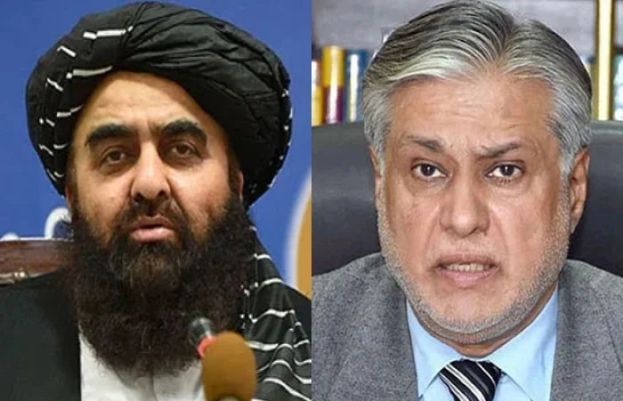Deputy Prime Minister and Finance Minister Ishaq Dar said on Tuesday that he received six calls from Afghanistan’s acting Foreign Minister, Amir Khan Muttaqi, emphasizing a single point: Afghan soil must not be used against Pakistan. Speaking on the Senate floor, DPM Dar stated, “I told the Afghan minister we only want one thing — that no attacks originate from Afghan territory. The current situation has placed him in a difficult position.” Reflecting on the aftermath of the Taliban takeover in 2021, Dar recalled that Pakistani envoys initially visited Kabul with goodwill, “essentially for a cup of tea,” but minor missteps soon had serious consequences. He stressed that such mistakes should not be repeated. Formal diplomatic ties between the two countries remained largely inactive for four years following the Taliban’s rise, but Dar traveled to Afghanistan to hold talks and sign agreements. He reiterated that Pakistan’s sole demand has consistently been that Afghan territory not be used for attacks against Pakistan. “Violent incidents in Afghanistan have increased since the current government assumed power,” Dar said, adding that Islamabad remains committed to defending itself and expressed hope that the talks scheduled for November 6 will advance progress. On domestic security, he noted that operations conducted up to 2018 had significantly reduced militant attacks within Pakistan. Separately, Dar refuted claims regarding payments to religious scholars in Punjab, stating he had no knowledge of any officials distributing Rs10,000 or Rs25,000 to ulema, calling it “regrettable” if true. Last month, Pakistan and Afghanistan agreed to extend a ceasefire during talks in Istanbul, mediated by Turkey and Qatar, after the worst border clashes between the neighbors in years. These clashes had triggered Pakistani airstrikes, Afghan retaliatory fire, and the temporary closure of key trade and transit crossings. Turkish officials confirmed that a follow-up meeting is scheduled in Istanbul on November 6 to finalize the mechanism’s implementation, and both Turkiye and Qatar “stand ready to continue cooperation with both sides for lasting peace and stability.” Taliban spokesperson Zabihullah Mujahid also issued a statement before midnight in Istanbul, confirming that the talks had concluded and affirming both sides’ commitment to continue discussions in future meetings. Islamabad-Kabul tensions Pakistan has been grappling with rising terror incidents, particularly in KP and Balochistan, since the Afghan Taliban regime took power in 2021. The government has repeatedly urged the Taliban regime to rein in terrorist groups responsible for countless attacks in Pakistan. However, the Taliban regime largely remained indifferent to Pakistan’s demands and provided refuge to multiple terrorist groups targeting security forces and civilians. Instead of addressing Pakistan’s concerns about cross-border terrorism, the Taliban regime resorted to unprovoked firing along the border on October 12. Pakistan Armed Forces retaliated swiftly, killing over 200 Taliban fighters and affiliated militants; however, as many as 23 Pakistani soldiers were martyred during the border clashes. Security forces also conducted strikes inside Afghanistan, including in Kabul, destroying terrorists’ hideouts in the country. Hostilities between forces of the two nations ceased after Pakistan accepted the Taliban regime’s request for a temporary ceasefire on October 17. Delegations from the two countries later met for talks mediated by Qatar in Doha, where they agreed on a ceasefire agreement. Turkiye then hosted the second round of talks in Istanbul, which began on October 25. However, the talks ended inconclusively after four days over what Pakistani authorities described as the Taliban delegation’s “illogical” arguments, which they said were “detached from ground realities”.
DPM Dar urges Kabul to tackle militancy after multiple calls with Afghan FM

